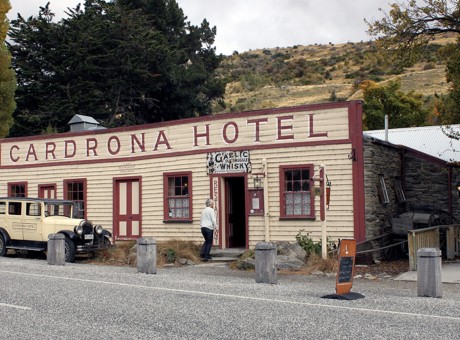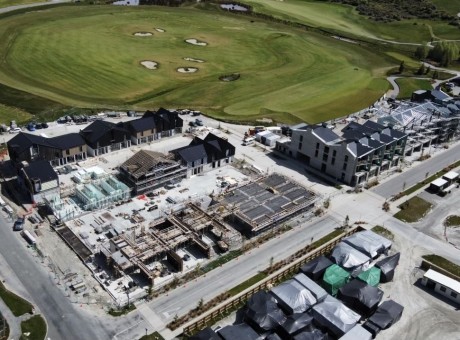Anti-airport academics ramp up fight against Tarras
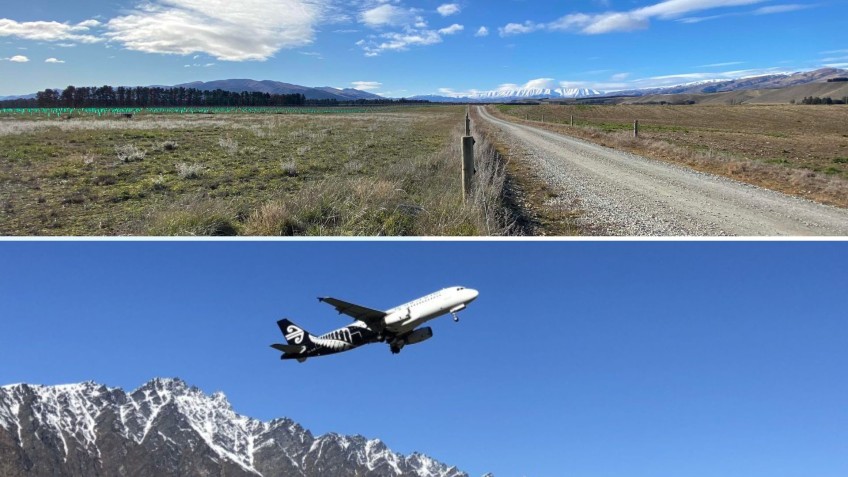
Christchurch Airport says it makes no sense to stop its Tarras airport project now, despite a growing number of New Zealand and international academics calling on it to shelve its plans.
Some 77 academics are now on the record as opposing the proposed new international airport in Central Otago, as an index of national and international research to inform the conversation is launched.
The research heavy hitters' ranks have swelled from 11 in January, when the group first went public with its bid to have Christchurch Airport shelve its expansion plans into rural Central Otago.
James Higham, a Distinguished Professor of Sustainable Tourism at the University of Otago, originally brought the group together and says that it grew swiftly after the airport company dismissed its concerns in February.
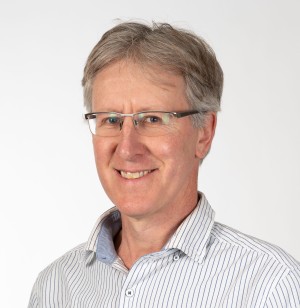
Professor James Higham is challenging Christchurch Airport's claimed climate credentials.
“To have nearly 80 leading academics - many of them professors and associate professors - now speaking out against an infrastructure project on the grounds of science is no small matter,” Professor Higham says in a statement to media.
“We have not done this lightly. It’s because we are all very concerned that significant, established science is being ignored, and that this project should not proceed.”
Professor Higham says the research index now available represents decades of research covering multiple relevant topics.
One of the most pressing for the academics – the carbon footprint of airline companies and, in turn, the airports they use.
They provide dozens of peer-reviewed papers which point to decarbonisation of aviation being a long way off and highlight significant concern around the airline industry talking of achieving ‘zero carbon aviation’ or ‘net zero’ based on technologies which currently do not exist.
“There is wide scientific consensus that there is still a lot of work to do, and many years - probably decades - before the industry could have any hope of significant decarbonisation. Zero carbon aviation is even further away. It is far from being a likelihood, and certainly not a done deal.”
However airport project leader Michael Singleton is pushing back, saying the industry is committed to change and progress is being made.
He says “aviation faces a particular challenge” as the climate changes, a fact which he is not disputing.
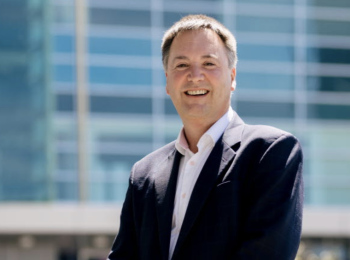
Michael Singleton, the man leading the campaign for Christchurch Airport to expand into Central Otago, says the south has connectivity problems.
“Globally industry has committed major resources to solving this problem. Progress is being made.”
He says New Zealand has no other option than to rely on plane travel into the future, so it needs to be planned for.
“The reality is New Zealand sits at the bottom of the world, across multiple islands and, unlike other countries, doesn’t have an alternate transport system, like rail.
Plus, it is his view the lower South Island has “real connectivity issues”.
“Not addressing these now will impact the wellbeing of future generations. The fact researchers want to stop us exploring a potential solution is short-sighted.”
He says stopping the project now “makes no sense and will leave decision makers with poorer information to base decisions on in the future”.
He is confident the regulatory environment that will help decide the project’s future is robust.
“New Zealand has clear planning frameworks and a rulebook for all infrastructure proposals .”
But the anti-airport academics remain unconvinced. Stacked up alongside their argument about airports and climate are concerns about the social licence of tourism, biodiversity and the threat to it from a new airport, and the potential strain on a local community expected to provide related airport infrastructure.
“We’re speaking out because, against this backdrop of research and data, building a new international airport in Tarras, or anywhere in New Zealand for that matter, is a nonsense and would be wrong for so many reasons,” Professor Higham says.
In a letter to the airport in March, the group of academics says the research findings they present are “unbiased”.
“It has been produced following rigorous research protocols, peer reviewed before publication, and it is independent in that it is not driven by a commercial imperative or interest,” the letter says.
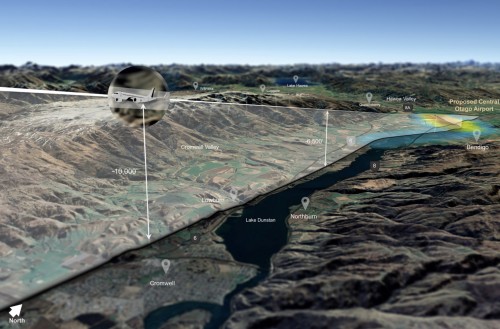
One of the proposed flight paths into rural Tarras.
“Unfortunately it casts a long shadow over your proposed airport.”
It is the second letter the group has sent to Christchurch Airport bosses. While the airport has acknowledged receipt of this second letter, sent seven weeks ago, they have not replied, according to the group.
Professor Higham says that he and others are calling for a “national conversation” about new airports.
Meanwhile a group of Tarras locals opposing the building of an international airport in their big backyard say they're still waiting for Christchurch Airport to sit down and talk with them.
A Facebook post on the Sustainable Tarras Facebook page yesterday says "it's been 1,000 days" since Christchurch Airport bosses said publicly their top priority was to talk to the Tarras community that lived close to the proposed airport site.
"We can confidently report that this hasn't happened and that we're still waiting."
The airport has engaged with different local stakeholder groups - viticulturalists, business associations, and local council among them - in a series of presentations since announcing its plans. However, the bulk of these have been invite only.
Main image: Rural land near Tarras could become an international airport if a proposal by Christchurch progresses.






